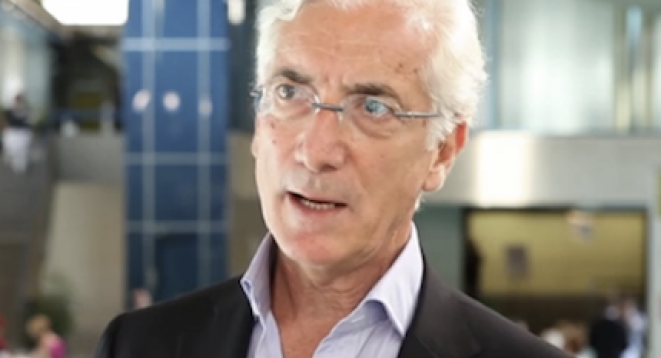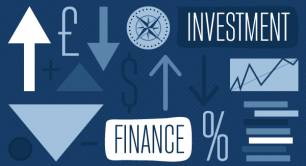Impact investment will be a 'powerful asset class', predicts Cohen

G8 Social Investment Taskforce chair leads 'major international effort' to boost impact investment
Sir Ronald Cohen, chair of the G8 Social Impact Investment Taskforce, has shared the focus points of a major international effort underway to develop impact investment.
During the closing keynote of the Global Impact Investing Network Investment Forum last week, he indicated that the outcome of the taskforce would likely be a new social impact asset class.
“We are mounting a major international effort of people committed to finding ways in which we can turn impact investment into a powerful asset class,” he said.
The British government launched the taskforce at the G8 summit held in the UK in June, with the aim of driving forward the impact investment agenda.
It became clear in the UK that giving money to non-profits was not a way to tackle social issues effectively, said Sir Ronald. "The philanthropic model can no longer cope."
"If we really want a new approach or an asset class to emerge it has to be done globally,” he continued.
The taskforce will combine the efforts of the G8 member countries with additional inputs from Europe and Australia to form a G8 plus two, explained Sir Ronald, later adding that the taskforce was seeking further worldwide input.
The taskforce has established ten national advisory boards and four specialist groups to advance thinking around how to turn impact investment into a powerful force to tackle social issues.
Nick O’ Donohoe, chief executive of Big Society Capital, will lead the UK’s advisory board. Matt Bannick, managing partner of the Omidyar Network, and Tracy Palandjian, chief executive of Social Finance USA, will lead the US board.
The four specialist working groups have been set up to tackle the key issues of impact measurement, portfolio asset allocation, international development and mission lock (how to align the mission of a for profit organisation to a social objective).
Sir Ronald set out his vision for the impact measurement working group as one that would enable each country, in five to ten years from now, to take every key social issue, and work out what the cost of intervention for that issue would be, the price the government was prepared to pay and the value to society of solving it.
In an interview with Pioneers Post following his keynote speech, Sir Ronald said that it was his personal hypothesis that an impact investment asset class would emerge from the taskforce.
In practice, this would mean investors could run their investment portfolios with conventional assets like equities, bonds, and property alongside social impact investment, with its own unique set of risks and returns.
“It is a little early to say that that feeling is going to be the conclusion of the taskforce, but it’s the hypothesis going in,” he said.
But commentators and practitioners are yet to come to an agreement on whether impact investment should be considered an asset class. At Social Finance, which was co-founded by Sir Ronald, opinion is divided.
In a recent blog post, Martin Rich, director at Social Finance, argued that social investment needs to be considered a mindset and not an asset class, that will re-shape the culture and practice of the financial system as a whole.
In a personal aside he captures this mindset: "The financially focused part of my portfolio needs to reflect my values just as much as the grants I might make and all the elements in between. I want to understand the local and global effects of the companies I invest in and, more importantly, I want to invest in those that are creating opportunities for sustainable human flourishing around the world."
Rich qualifies well-documented progress around social investment with a reality check: "JPMorgan’s seminal 2010 report predicted social investment could be as large as $1 trillion over the next decade – barely 1% of global assets."
Fitting social investment into the framework of mainstream finance, by viewing it as an asset in an investor's portfolio may relegate it to marginality, given the reality that financial return and short-term thinking continue to rule business and investment decisions.
"We need to redefine success in terms of the wellbeing that is generated by our activities and how this wellbeing is distributed across populations and generations," he said.
Sir Ronald explained that he was still only at the early stages of thinking about what the asset allocation working group would be spending time on, but he emphasised the need for clear definitions in impact investment from the outset.
“If you don’t define it sufficiently clearly there is a danger that it just becomes like a greenwash, something that everyone just does a bit of in order to position themselves,” he said.
“I am very keen to make a distinction between impact investment, which is dependent on achieving a social performance, and investment with impact,” he continued.
Sir Ronald explained that investing with impact applies to businesses whose primary purpose is profit and secondary impacts are social, "some businesses can be seen as creating jobs, what you do when you create a business, but they’re not addressing a social issue directly, few of them are creating jobs because they were set up to address unemployment."
A defining feature of impact investment, Cohen explained, was that you connect a social performance to a financial return, and the social performance could be an improvement in educational levels, drop-out rates, homelessness or improvement in recidivism, for example.
This, he said, was a very powerful characteristic, because you could make a financial return that wasn't dependent on financial markets, the rate of interest, the Dow Jones, the S&P or any indices.
Sir Ronald questioned the idea of impact investment as a broad approach to investment. To consider assets like public equities and fixed income in a porfolio, and then endeavour to invest in companies that are doing good things, would end up being a lot less productive than creating a social impact investment asset class, he argued.
In his keynote speech Sir Ronald said it would be difficult to get traction and expertise behind impact investment if it was considered an approach. “I don’t think it’s going to lead to the innovation we’ve seen in technology and that we can see in the social sphere," he said.



